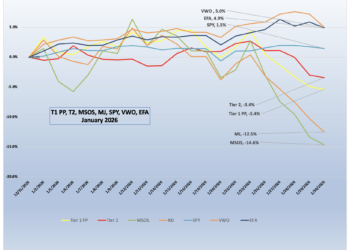The Cannabist Co. (CBSTF), formerly known as multi-state giant Columbia Care, is dropping out of Florida just months ahead of when Sunshine State voters will go to the polls to determine if adult-use cannabis will be legalized.
“These initiatives include a corporate restructuring expected to generate approximately $10 million in annual cost-savings; the planned divestiture of its entire asset portfolio and license in Florida; and closing or modifying the operations of other underperforming assets,” the company said in a June 17 press release.
The company currently operates 14 dispensaries and four facilities across the Sunshine State, according to the its latest annual filing with the SEC.
The Cannabist has licenses in 14 states and Washington D.C., but it operates more retail storefronts in Florida than it does in almost any other state, second only to the 22 Cannabist outlets in Colorado. Virginia is a close third with 12 retail shops, while the rest of the states have fewer than 10.
The company estimated that throughout 2024, it would make about $2.8 billion in sales in Florida, the second highest behind California sales. Despite these stats, Cannabist’s Florida businesses lost $18.9 million in net income throughout 2023, and $4.8 million in the first quarter of 2024, according to the press release.
Before the company’s rebrand, Columbia Care was on the verge of merging with Cresco Labs to create the nation’s largest MSO. That deal was contingent on the divestiture of numerous licenses in states where both companies were already operating, delaying the deal. Part of the plan involved selling off properties in New York, Illinois and Massachusetts, with a possibility that a separate buyer might purchase the Florida license.
Ultimately, both deals fell apart and none of those proposed divestitures took place. Since then, the company has been reassessing its assets.
“As we have made clear since the beginning of 2024, under new leadership, The Cannabist Company will look very different by the end of this year in terms of our operational footprint, overhead expenses, and de-risked financial profile. Our focus is on building a better business, positioned for profitability and long-term sustainable growth,” said CEO David Hart in a statement.
“We are decisively leaning into the markets that are best positioned for growth and strategic upside, while also monetizing underperforming and non-core assets. In Florida, for example, our asset base is not commercially optimized, with more cultivation capacity than our retail locations require. Our retail footprint and cultivation and manufacturing capacity are better suited to balance other operators’ portfolios, meanwhile we will eliminate loss-making operations and bring in non-dilutive capital.”
The annual report touted plans to expand in Ohio, Virginia, Delaware and Maryland — all states with emerging or upcoming adult-use markets. The Cannabist currently operates five medical dispensaries in the Buckeye State, with the possibility of converting those to adult-use and open three additional adult-use dispensaries.
The company has 12 retail outlets in Virginia where operators wait for the state to allow for the commercial sale of adult-use cannabis. Despite possession being legalized, Gov. Glenn Youngkin in March vetoed a bill to create an adult-use marketplace. The Cannabist is also relying upon adult-use expansions in Delaware and Maryland where the company already has a substantial medical foot print.
The company, which holds a license in New York to operate in the medical market, recently gained entry into the adult-use market as a cultivator. This expansion is also prominently shared in the annual report.
“We will continue to capitalize on our strong asset base in profitable markets such as Virginia and New Jersey, and we are actively preparing for upcoming adult use transitions in Ohio and Delaware,” said Hart. “The significant corporate restructuring we’ve undertaken will simplify our business, reduce overhead expenses, and more appropriately align with our evolving operational footprint as we exit Florida and divest assets in other underperforming markets in the coming months.”












